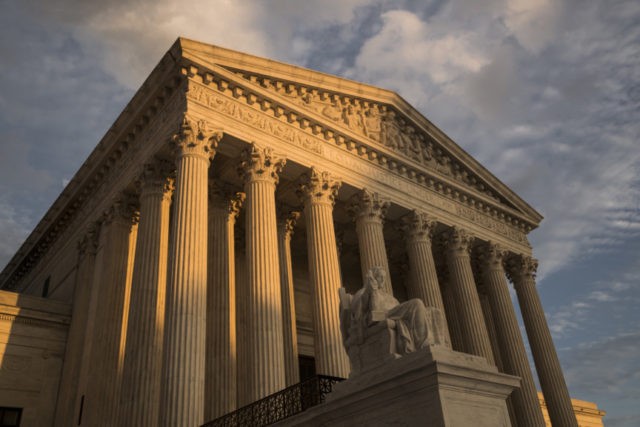WASHINGTON, DC – The Supreme Court declined Monday to take up a case claiming secular legal rights against transgender school policies, but will instead decide more basic LGBT legal issues next year.
Boyertown Area School District in Pennsylvania adopted an SOGI (“sexual orientation and gender identity”) policy of allowing students to declare which gender they identify with – boy or girl – and then use the facilities of that sex. Under this policy, a 17-year-old boy can identify as a girl, and then has the right to use a shower next to a 15-year-old girl in the locker room while that girl is fully undressed.
Several students sued the school, claiming a constitutional right to refuse to be seen naked by members of the opposite sex. Lawyers also argued that the transgender policy violated Title IX in federal education law.
A federal district judge held that no rights were violated, because if a girl declares herself to be a boy, then in the eyes of the law she is a boy, and she should be considered a boy by other students. The court concluded it would be unreasonable for other boys to be offended by being unclothed in the presence of that person, because reasonable students should regard that person as a member of their own sex.
The U.S. Court of Appeals for the Third Circuit affirmed the district court, though on a different basis. The Third Circuit concluded that preventing discrimination against LGBT individuals and promoting acceptance of the LGBT agenda are such compelling public interests that any asserted constitutional right to the contrary must give way to advancing those interests.
The Supreme Court denied review of this case. However, conservatives should not construe that as a sign that a majority of the justices agree with the lower courts in upholding SOGI policies.
To the contrary, the Court recently granted review in the fall on two LGBT cases. One is Altitude Express v. Zarda, where the Court will decide whether, for Title VII’s federal prohibition on sex discrimination in employment, the term “sex” includes sexual orientation. In another case, R.G. & G.R. Funeral Home, the Court will decide whether “sex” includes gender identity.
It is one thing to say that federal law does not protect sexual orientation and gender identity like it protects on the basis of race or sex. These cases do not even go the extra mile advocated by LGBT supporters of claiming a constitutional right to such SOGI protections.
But it is quite another for the Court to declare that there is a constitutional right to object to SOGI policies, aside from First Amendment rights of religious liberty and free speech. Before the justices would even contemplate such arguments, it is not surprising that they would first want to decide the much more basic issues raised in Zarda and in Funeral Home.
In fact, the Alliance Defending Freedom (ADF) is representing the non-LGBT parties in both the transgender case that the Supreme Court has already taken for next year, and the one the Court downed this week. So this issue is moving forward, while the justices are taking one step at a time on how to approach the matter.
Many parents and students nationwide strongly object to policies like Boyertown’s. However, elected school boards and elected state legislators can reject or reverse such policies at any time. Many conservatives draw a distinction between settling such matters through the democratic process versus inviting federal judges to decide these issues, with supporters on both sides of that argument.
The case is Boyertown Area School District v. Pennsylvania Youth Congress Foundation, No. 18-658 in the Supreme Court of the United States.
Ken Klukowski is senior legal analyst for Breitbart News. Follow him on Twitter @kenklukowski.

COMMENTS
Please let us know if you're having issues with commenting.